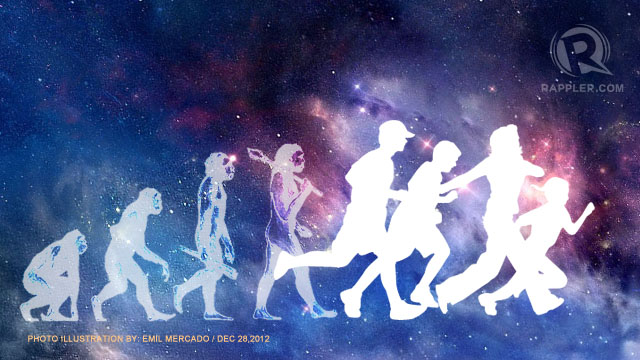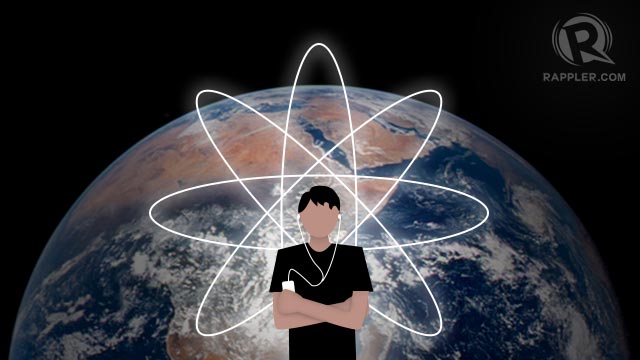SUMMARY
This is AI generated summarization, which may have errors. For context, always refer to the full article.

 Even if you still strongly believe that everything else revolves around the Earth or if you are attracted to doomsday hysteria, it will not change the fact that not only did the world not end last December 21, our planet will also – in a few days – once again complete its turn around our one and only Sun.
Even if you still strongly believe that everything else revolves around the Earth or if you are attracted to doomsday hysteria, it will not change the fact that not only did the world not end last December 21, our planet will also – in a few days – once again complete its turn around our one and only Sun.
For those whom we have lost on the way, we remember them and hopefully learn the lessons that will make the journey better for the rest who will still be in this turn. But will it really be better? What do we know now in science that gives us reason to be optimistic about human nature and how it has been faring?
It may come as a big shock to most of you but the world is really a lot more peaceful now than ever before in history. Steven Pinker, a Harvard neuroscientist studied a vast range of human conflict among societies, and in his 2011 book, “The Better Angels of Our Nature: The Decline of Violence in History and its Causes,” he concluded that in terms of casualties, we have never been this peaceful since prehistory.
Mark Pagel, also wrote in his 2012 book called “Wired for Culture: The Natural History of Human Cooperation” that humans have learned to peculiarly equip themselves with a “tool” to survive. And this “weird way” is called culture which, he says, is largely marked by cooperation instead of violence.
We should also remember that humans are indeed generally getting smarter compared to the generation of your grandparents or great grandparents. And this is not because your generation has been magically gifted. Rather, it is because the ability to think in abstract concepts as required by modern life, born out of scientific thinking, became necessary to survive the cultures and environments we have created.
You were, in a way, “lucky” to have been selected by nature to deal and survive these changes. And if your luck stays and you are wise enough to work on it, you will stay long enough to pass on these traits to your children.
Dealing with teens
This idea of humans generally becoming “better” was the idea brewing in my head these last few days while I was on a trip with my family, which included 3 teenagers: two nephews and my niece. I have been noting a few things about their behavior which bothered and worried me.
They seemed too careless with their stuff – judging from their refusal to be detached from their computers (plus earphones) – they seem to forget their brains power their gadgets and not the other way around. I was also worried they seemed to care too much about themselves and their needs, oblivious to other humans in the planet. So I asked their parents if I could have some time with them.

I told the kids my gift to them was not the trip we were on, but the chance for them to ask me anything about our family, past and present, which they may have always wondered about but were unsure if they could ask.
I told them I was doing that because it was something I wish someone in my family did when I was a child. They did ask me the most interesting questions about our family which I tried to answer the best way I could.
I told them I wanted to talk to them because of the things that humans could be hopeful about – that we are all generally peaceful and even getting smarter. I told them I wanted to make sure I did my best in making them aware that if they get violent and stay and behave like selfish and reckless teenagers forever, they will be the exception, the fringes.
Then the most amazing thing happened: they paid attention.
It was, for someone child-free like me, a very rare phenomenon to observe. Three teenagers actually stared at me and said things that were well within what intelligent human beings would say when told by their weird aunt they may be setting back the progress of humanity (at least the humanity of the Garcia family.)
Personal stories
In other words, they assured me they too were critical of their own generation and that yes, they would always remember to take off their earphones when with people who are willing to converse with them.
They said other reassuring things that gave me relief this current generation in my family was not about to set humanity back in terms of violence and idiocy. And best of all, we all had a good laugh and I realized only later I would not have been able to have such a conversation with them had they not been smart and “cool.”
In the course of answering their questions about family members, I inevitably had to tell the personal stories of people who were related to us. I did not miss the chance to tell the kids that even if I often tell them about patterns in science, they should remember to look to these for lessons without forgetting to live their own personal stories.
We are only as rich as the stories we live out and listen to. And equally important is that they be aware that unlike 10,000 years ago when an individual could affect only 50-100 people at the most, as Pagel wrote in his book, we who live in this time can affect countless lives. So it is also important to be mindful of the story they craft and tell, and the way they tell it.
So, there is reason to hope. If there is hope for teenagers, there is hope for everyone.
Here’s to one more trip around the Sun. May it be filled with supremely interesting stories. – Rappler.com
Maria Isabel Garcia is a science writer. She has written two books, “Science Solitaire” and “Twenty One Grams of Spirit and Seven Ounces of Desire.” Her column appears every Friday and you can reach her at sciencesolitaire@gmail.com.
Add a comment
How does this make you feel?
There are no comments yet. Add your comment to start the conversation.